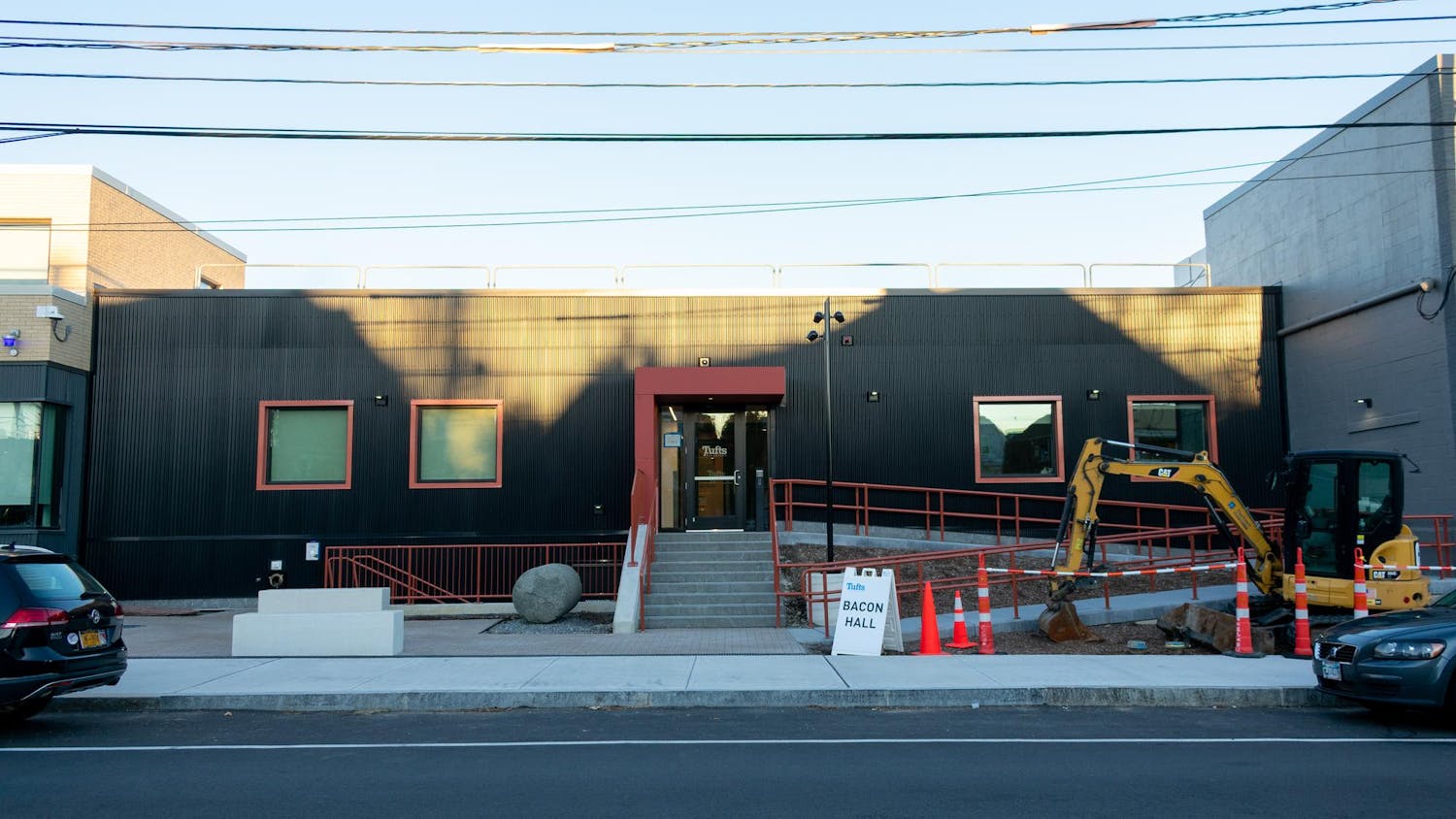"Same Roots, Different Soil", a three-day long, student-run conference held this past weekend, explored the art, religion and politics of the African diaspora through speakers, panels, art shows and a workshop. The event, which spanned from Oct. 13–15 at different locations on campus, was hosted and organized by the African Students' Organization (ASO), Caribbean Student Organization (CSO) and the Cape Verdean Student Association (CVSA).
According to junior Caila Bowen, the director of events for CSO, a total of 113 tickets were sold for the conference and 500 were sold for the after-party. The conference was attended by students from a wide variety of colleges and universities in the Northeast, including Yale University, Brown University, Vassar College, Harvard College and others, according to CSO Director of Public Relations Kella Merlain-Moffatt.
The conference’s main purpose was to explore the different backgrounds of the African diaspora and bring students who identify with those backgrounds together through the various events, Merlain-Moffatt, a sophomore, said.
“Same Roots, Different Soil is a conference of exploring blackness through the context of Africa and the Caribbean," Merlain-Moffatt said. "We truly believe that this conference will be able to bridge gaps and that our participants will be able to leave with new knowledge."
According to Merlain-Moffatt, the idea of the conference was conceptualized in the spring of this year by a group of friends who felt there was a lack of spaces that explored blackness through the African and Caribbean lens. Rebecca Antwi, president of ASO, agreed, saying there was a need to look at the African and Caribbean perspective among area college students.
“We wanted to have a conference exploring blackness, not only through the American perspective but through the Caribbean-African perspective because a lot of people here are either international students or first-gen students from the Caribbean and Africa,” Antwi, a senior, said. “We have clubs, we have meetings, but we haven’t had a chance in the Northeast to come together and have a conference, specifically talking about our roots, our culture, the similarities and differences we have while being black in America at the same time.”
According to Antwi, this conference was the first of its kind and involved months of careful planning and coordination. She mentioned how it was important for her and other executive board members of ASO, CSO and CVSA to strike a balance between fun and educational events.
Desmond Fonseca, the treasurer of CVSA, said that organizers also worked to ensure the conference reflected the various identities present in the African diaspora during the planning process.
“We’d have meetings that would go on for two or three hours just about what we want the conference to look like," Fonseca, a sophomore, said. "The name of the conference is [Same Roots, Different Soil] — so this idea of roots being a very powerful one — just so that we can be stronger as a community, whatever community means in terms of the African diaspora."
Fonseca added that professors and other advisors assisted in the planning of the conference.
Antwi said the conference was an important avenue to start conversations about stigmas that are present among different groups.
“There are stigmas between tribes, between countries and if we can break down some of the stigmas and have some of those conversations, [we can] realize we're not as different as we seem,” she said.
The event started Friday with a meet-and-greet dinner and a film screening. The majority of the conference's events were on Saturday, including three panels on religion, politics and art and later in the day, a poetry workshop, talent exhibition, traditional dinner and after-party at Harvard College. The conference concluded with a closing ceremony on Sunday.
The first panel, entitled "De-stigmatization of indigenous African and Caribbean religions," featured speakers Néité Décimus, a “chosen vaudou priest” with a master’s degree in mental health counseling, and Elana Jefferson-Tatum, assistant professor in the Department of Religion.
"Exploration of what politics are and how Black individuals move through that space in the search of unity," the second panel of the day, included panelists Aminah Pilgrim, senior lecturer of Africana studies at the University of Massachusetts, Boston; Michael Woldemariam, assistant professor of international relations and political science at Boston University and Selwyn R. Cudjoe, professor of Africana studies at Wellesley College, according to Merlain-Moffatt.
The final panel, on arts, was titled "Exploration of cultural histories and traditions through art forms, specifically through linguistic forms," featuring panelists Josephine Tavares, who developed a Cape Verdean Creole-to-English dictionary, and Silas Pinto, a musician and lecturer at Tufts in the Department of Education.
According to Fonseca, the panelists were invited through connections of ASO, CSO and CVSA. He said the event's ultimate purpose was understanding black identity in the African diaspora.
"Tufts specifically has the Africana Center, and that’s supposed to be a very broad organization with this base that we are an African diasporic people, so I think the root of this conference is trying to get to that center ... of what it means to be black and what it means to come from the African diaspora," he said. "These are conversations [that are] prioritizing blackness and for black people to talk to black people."
He added that the timing of the conference, which coincided with parents weekend, was critical.
"[There’s] a weird dynamic where this conference is happening and we're having parents weekend, which are very white spaces, but this is a black space," Fonseca said. "I think it’s very important to have this black space, especially in the midst of things that are happening at Tufts.”
More from The Tufts Daily





